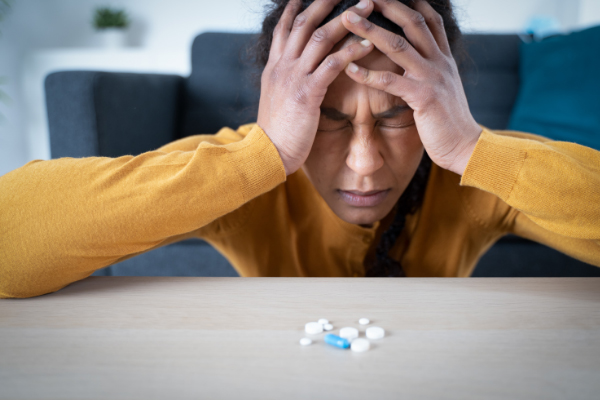Evidence suggests that anxiety and substance use disorders often go hand-in-hand. Numerous studies have shown that an individual who suffers from anxiety will frequently self-medicate by using drugs or alcohol. In the interim, using drugs and alcohol will many times cause anxiety disorders. In fact, the Anxiety and Depression Association of America says that approximately 20 percent of people diagnosed with an anxiety disorder also have a substance use disorder. Just as 20 percent of those diagnosed with a substance use disorder also suffer from a mood or anxiety disorder. How do you treat someone with both an anxiety and substance use issue? For example, are benzodiazepines a good idea for the treatment of anxiety if the individual has an addiction problem? 
What Are Benzodiazepines?
Benzodiazepines are psychoactive drugs known as sedatives or tranquilizers to treat anxiety disorders, insomnia, seizures, and muscle relaxants. Benzodiazepines are also commonly used in surgical procedures preoperatively. Unfortunately, these drugs are highly addictive. Benzodiazepines work by enhancing the GABA neurotransmitters in the brain, which suppress the activity of the nerves. As central nervous system depressants, benzos produce a calming effect when taken.
Is it Safe to Use Benzodiazepines in Someone with Substance Use Disorders?
Benzodiazepines are the most commonly used medications for the treatment of anxiety disorders in the US. 55 to 94% of individuals with anxiety disorders are treated with benzodiazepines despite efforts to promote antidepressants as the first line of treatment. The National Library of Medicine PubMed “Should Patients With Substance Use Disorders Be Prescribed Benzodiazepines?” says:
Patients with substance use disorders (SUDs) should not use benzodiazepines to treat anxiety, insomnia, or anything else, for the same reasons that they should not drink any alcohol or use other drugs, regardless of their primary drug used. Once the addiction “switch” is thrown on, it never again goes off. This question has additional relevance today because, in 2016, the US Food and Drug Administration put black box warnings on all benzodiazepines and opioid analgesics about the serious risks associated with their concomitant use. Anxiety is not a benzodiazepine-deficiency disease. It is possible to treat anxiety and insomnia without medicines of any kind, and it is possible to use medicines other than benzodiazepines for these common and serious mental disorders. (NLM)
While benzodiazepines can be very effective medications, they should only be prescribed or used short-term due to the risk of dependency and misuse.
How Do You Treat Someone With Both Anxiety and Substance Use Disorders?
Several other medication classes are effective for anxiety when someone also has a substance use disorder. Some medications often used include Buspirone, antidepressants such as SSRIs, tricyclic antidepressants, and MAOIs or beta-blockers. Psychotherapy, including cognitive-behavioral therapy, is also another recommended treatment. In addition, some non-pharmacological treatments for anxiety can include exercise, meditation, chamomile, aromatherapy oils, and tips like avoiding too much caffeine.
Get Confidential Treatment for Substance Use Disorder at Evoke Wellness
Evoke Wellness offers a safe and comfortable environment for medical detoxification. Our patients are treated extensively so that minimal discomfort is experienced during the detox process. We provide residential treatment in a structured environment and then provide you with aftercare support, which is very important when being treated for addiction. Evoke Wellness is here to help you get on the road to long-term recovery.


